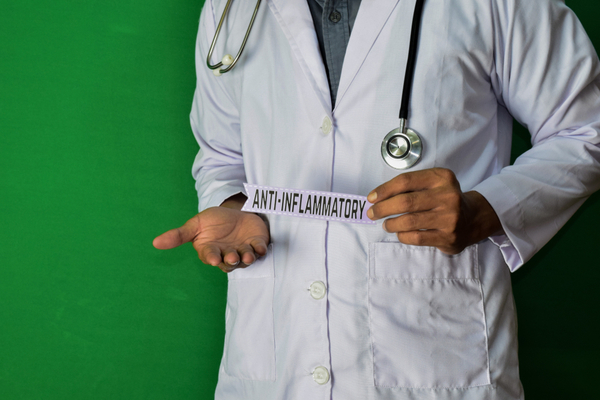Nine Foods To Avoid If You Have Hashimoto’s | RedRiver Health And Wellness Center

When we see a new patient with Hashimoto’s hypothyroidism, one of the first and most powerful things we do is put them on an anti-inflammatory diet.
Hashimoto’s is an autoimmune disease that attacks the thyroid gland, causing hypothyroidism. It is the cause of more than 90 percent of cases of hypothyroidism in the United States.
We start with an anti-inflammatory diet because the western diet increases inflammation and your risk for chronic disease. An anti-inflammatory designed to manage autoimmune disease, on the other hand, is dense in nutrients and low in inflammatory foods. It consists of a whole-foods diet abundant in colorful vegetables, leafy greens, healthy proteins, and healthy fats, such as olive oil and avocado oil. It also requires avoiding sugars, processed foods, junk foods, and industrial oils such as soybean oil or canola oil.
During the years of running our clinics, we have been testing patients—who come from all over the country and around the world— for food intolerances. When you have a food intolerance, it means the food is causing inflammation in your body every time you eat it. If you have an autoimmune disease such as Hashimoto’s, this chronic inflammation will promote ongoing autoimmune attacks against the thyroid gland.
Removing these foods from their diet helps significantly in lowering inflammation and slowing or halting autoimmune destruction of tissue.
Here are the food intolerances we see most often and that you should avoid if you have Hashimoto’s:
- Gluten: Gluten is by far the most inflammatory food we see in immune testing.
- Dairy: Dairy comes up about as often as gluten as being inflammatory.
- Soy
- Rice
- Corn
- Aspartame (artificial sweetener used in most diet beverages)
- Pork (beef to a lesser degree)
- Eggs
- Iodine: Studies show many Hashimoto’s patients do better on a low-iodine diet; cases of Hashimoto’s rise in areas where iodine is introduced. Dietary sources high in iodine you should avoid include:
- Iodized salt
- Saltwater fish
- Seafood
- Seaweed
- Supplements, multivitamins, or protein powders that contain iodine
- Dairy products
- Foods that contain the additives carrageen, agar-agar, alginate, or nori
- Bakery products made with iodated dough
Additionally, I have my patients remove all grains, all legumes, and all nightshade vegetables (peppers, eggplants, tomatoes, and potatoes), and alcohol.
What can you eat? The foods you can eat on this diet include:
- Poultry
- Fish
- Lamb
- Vegetables (that aren’t nightshades)
- Fruits: Minimize fruit consumption because it is high in sugar. Eat fruit with fiber, protein, or fat to slow down the absorption of sugar.
- Healthy fats like olive oil, avocado oil, and coconut oil
If you follow a Hashimoto’s diet for 30 days that eliminates these foods along with sugars and other sweeteners, includes ample amounts of vegetables, and removes processed and fast foods, this will profoundly reduce your inflammation and help you bring your Hashimoto’s under control.
To learn more about Hashimoto’s and other factors that can cause hypothyroidism, read my book The Truth About Low Thyroid contact one of our wellness centers for more information.
About Dr. Redd
Josh Redd, MS, DABFM, DAAIM, is a chiropractic physician and author of the Amazon bestselling book The Truth About Low Thyroid. Dr. Redd owns seven functional medicine clinics in the western United States and sees patients from across the country and around the world who are suffering from challenging autoimmune, endocrine and neurological disorders. Dr. Redd also teaches thousands of health care practitioners about functional medicine and immunology, thyroid health, neurology, lab testing, and more.
https://www.redriverhealthandwellness.com/nine-foods-avoid-hashimotos/





